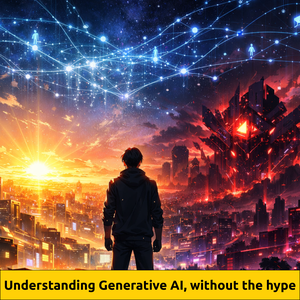
TL;DR
The FSF's Licensing and Compliance Lab engaged with GNU toolchain maintainers at GNU Cauldron to discuss GPL compliance, AI-generated code, and attribution in containerized environments.
Key Points
Highlight key points with color coding based on sentiment (positive, neutral, negative).The FSF licensing session at GNU Cauldron covered GPL compliance, LLM-generated content, container compliance, and notice requirements.
The FSF addresses GPL violations through its licensing and compliance lab by providing guidance and resolving issues.
The session highlighted legal uncertainties surrounding LLM-generated code, particularly regarding copyright and compliance with open-source licenses.
GPL compliance in containerized environments is challenging due to the layered nature of containers and the need to maintain license notices.
There is an ongoing effort to develop new licenses for machine learning to better define and safeguard software freedom in this context.
Stakeholder Relationships
An interactive diagram mapping entities directly or indirectly involved in this news. Drag nodes to rearrange them and see relationship details.People
Key entities and stakeholders, categorized for clarity: people, organizations, tools, events, regulatory bodies, and industries.Led the discussion on licensing issues related to the GNU project at the FSF licensing session.
Contributes to the FSF licensing and compliance lab, focusing on corporate assignments and compliance.
Organizations
Key entities and stakeholders, categorized for clarity: people, organizations, tools, events, regulatory bodies, and industries.Hosts the licensing and compliance lab that addresses GPL violations and provides guidance on GPL usage.
Events
Key entities and stakeholders, categorized for clarity: people, organizations, tools, events, regulatory bodies, and industries.The venue where the FSF licensing session took place, focusing on licensing issues related to the GNU project.
Regulatory
Key entities and stakeholders, categorized for clarity: people, organizations, tools, events, regulatory bodies, and industries.A key focus of the FSF licensing session, addressing compliance and usage guidance.
Timeline of Events
Timeline of key events and milestones.Andrew Katz delivered a talk at FOSDEM addressing the legal challenges associated with LLM and coding.
The FSF’s Licensing and Compliance Lab held a session at the GNU Tools Cauldron event in Porto, Portugal, focusing on open discussions with GNU toolchain maintainers.
The "Licensing Birds of a Feather" session at the GNU Tools Cauldron in Porto, Portugal, was anything but your typical licensing talk. Krzysztof Siewicz, the speaker, took attendees on a journey through the tangled web of GPL compliance and the tricky terrain of LLM-generated content. The FSF's licensing and compliance lab, a key player in tackling GPL violations and guiding its usage, was front and center. And let's not forget the deep dive into container compliance and those pesky notice requirements that often slip under the radar but are oh-so-important.
Krzysztof Siewicz didn't hold back when it came to the thorny issues of LLM-generated code. Is it copyright protected? Could it infringe on existing copyrights? These questions are more pressing than ever as developers lean more on LLMs. The legal implications of using LLMs, especially concerning training data and associated licenses, sparked lively discussion. Krzysztof Siewicz emphasized the need for clear guidelines to help contributors navigate the potential risks and responsibilities when incorporating LLMs into their work.
The conversation took an interesting turn when comparing LLMs to traditional methods, like grabbing code from Stack Overflow. Sure, LLMs bring new legal challenges, but many issues echo familiar concerns about copyright and licensing. Krzysztof Siewicz noted that while these aren't entirely new problems, the rise of LLMs adds a layer of complexity that developers need to be aware of.
Another highlight was the importance of maintaining accurate notices and attributions in software projects. Krzysztof Siewicz used the gypsy project's licenses file as a case in point, underscoring the need to preserve original notices. While automating license management is handy, ensuring accuracy is crucial. The session highlighted the ongoing challenges in software licensing, especially with emerging technologies like LLMs, and the critical need for education and clear guidelines to help developers navigate these waters effectively.
Additional Resources
Enjoyed it?
Get weekly updates delivered straight to your inbox, it only takes 3 seconds!Subscribe to our weekly newsletter Kala to receive similar updates for free!
Give a Pawfive to this post!
Start writing about what excites you in tech — connect with developers, grow your voice, and get rewarded.
Join other developers and claim your FAUN.dev() account now!
FAUN.dev()
FAUN.dev() is a developer-first platform built with a simple goal: help engineers stay sharp withou…

Kala #GenAI
FAUN.dev()
@kalaDeveloper Influence
16
Influence
1
Total Hits
127
Posts















